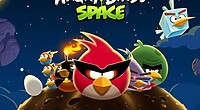
Ruckus Reader launched two weeks ago and in that short time has had over one million user sessions. Following the launch of this iOS-specific application that takes kids’ reading to a whole new level of parent involvement, Rick Richter spoke with GoodeReader about how Ruckus can help emergent readers.
“All of the folks at Ruckus have a DNA in kids’ literature. What we set out to do was to put together an application library that would not only be entertaining for kids but would give parents feedback on how their kids were doing developmentally,” explained Richter about the system of reading that allows young readers to only work through the designated apps at that time. “We’ve created a subsystem that lives below the mother screen of the iPad, so a child can navigate a number of our applications without having to go back to the surface of the iPad.”
Ruckus Reader functions in a series of title-specific bookshelves; essentially the parent downloads one set of bookshelves and within that set there are free and subscription-based books related to that character or theme. The optional narration and highlight books also include add-on features that incorporate sight word recognition at increasing difficulty, such as spelling games and word recognition activities.
But what does Ruckus have to offer in a market that is flooded with high-quality and award-winning children’s app book content? The primary difference is the ability for parents to receive metrics that explain dynamics such as how long their children spent interacting with a specific title, how the young readers fared on the extras like finding words embedded in the text, and at what level based on the Common Core standards (adopted in 42 states so far) their children are selecting books. Up to four different accounts can be entered in a bookshelf so that different readers’ interactivity and learning can be tracked. As readers, the students have access to the different applications once they are signed in.
Interestingly, Richter recently presented the findings of a survey at MIT that demonstrated a key level of parental guilt about entertaining their children through interactive content, even towards app book reading on digital devices. Having the metric feedback from Ruckus on their children’s progress, and having the ability to add other key figures in the child’s life like teachers or relatives in order to keep them updated on the children’s progress, served to alleviate some of that digital entertainment guilt.
Ruckus is already working towards developing the Reader for an educational setting and creating a teacher’s edition with as many as thirty-five user accounts and parent portals. “We understand that there is going to be a school setting for this and we are already planning a school edition.”
“We’d like to create a very high interest portal for kids,” said Richter of the forty-plus titles already available two weeks into the launch, with a plan in place to add as many as twenty-five new titles per month.
“In the world of startups, you’re never really quite sure where you’re going to go at the end of the day. I think that ultimately where we live is going to be up to parents and teachers to decide based on how quickly they get excited about what we do.”
Mercy Pilkington is a Senior Editor for Good e-Reader. She is also the CEO and founder of a hybrid publishing and consulting company.
